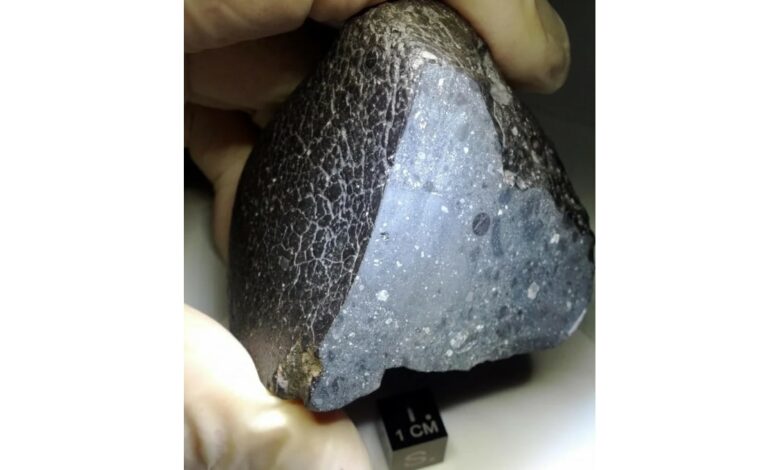Ancient meteorite reveals hot water may have existed on Mars

The earliest known direct evidence of warm water activity on Mars has been found, pointing to the possibility that the planet may have supported habitable environments in its distant past. Scientists have analyzed a zircon grain estimated to be 4.45 billion years old, recovered from the Martian meteorite NWA7034, often called ‘Black Beauty’. Geochemical features in the grain suggest interactions with water-rich fluids during the planet’s early years.
Hydrothermal systems and their role in habitability
The researchled by Dr Jack Gillespie from the University of Lausanne and published in the Science Advances journal in collaboration with Curtin University and other institutions, identified chemical markers such as iron, aluminium, yttrium and sodium in the zircon. These findings imply that hydrothermal systems, driven by magmatic activity, were present on Mars during the pre-Noahian period, predating 4.1 billion years ago. According to the study, these systems could have created conditions favorable to life, reflecting the role hydrothermal systems played in the emergence of life on Earth.
Key findings and insights from experts
Dr. Aaron Cavosie, from Curtin University’s School of Earth and Planetary Sciences, explained to Science Advances that nanoscale geochemical analysis revealed elemental patterns indicating the presence of water during early crust formation on Mars. “Despite the intense meteorite impacts that reshaped the surface of Mars, traces of water were preserved during this turbulent era,” he explained.
Implications for the habitability of Mars
Previous research on the same zircon grain had confirmed that it had undergone shock deformation by a meteorite impact, making it the only known shocked zircon from Mars. This new study builds on previous findings by providing direct evidence of water’s involvement in grain formation.
The international collaboration, supported by Curtin University, the University of Adelaide and the Swiss National Science Foundation, marks significant progress in understanding Mars’ early environmental conditions and its potential to harbor life. The study’s insights advance scientific understanding of ancient hydrothermal systems on Mars and their critical role in creating habitable environments.




